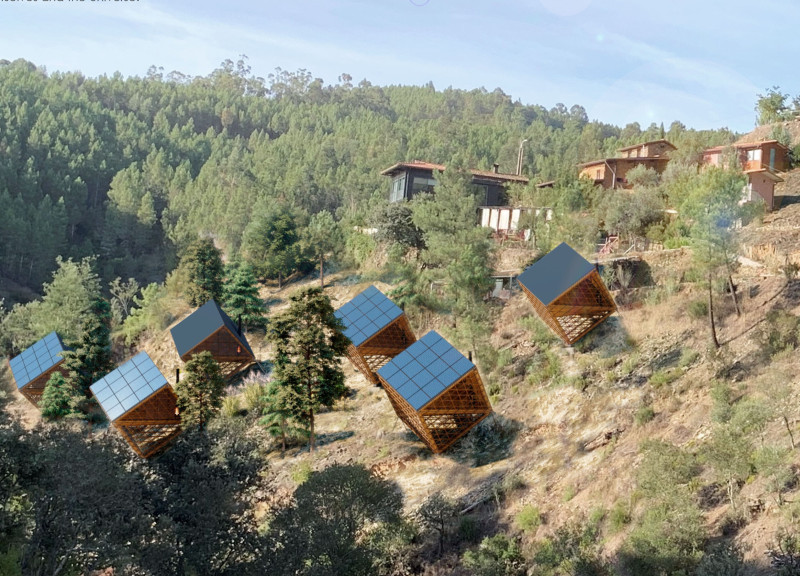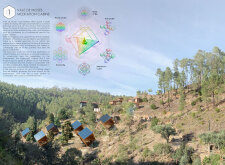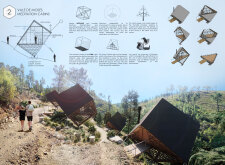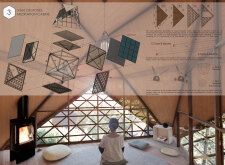5 key facts about this project
Vale de Moses Yoga Retreat is a carefully designed space located in a mountainous area that focuses on healing and meditation. The architecture aims to create a sense of harmony and connection between people and nature. The design centers around the geometric form of Metatron's Cube, which provides both a structural framework and spiritual significance, enhancing the retreat's purpose.
Architectural Concept
The buildings are rooted in the principles of Metatron's Cube, reflecting a commitment to balance and a flow of energy. This geometric shape not only creates a distinct visual identity but also fosters a feeling of security and privacy, vital for a place dedicated to meditation. The use of sacred geometry encourages a deeper interaction with the surrounding environment, making it an integral part of the guest experience.
Structural Design
Cabins are built on triangular bases, which lead to the formation of a tetrahedron, creating energy-efficient inner spaces. This fractal design principle means that each component of the structure relates proportionately to the whole, echoing patterns found throughout nature. This careful arrangement contributes to both the aesthetic and functional appeal of the cabins, allowing them to adapt well to the varied terrains.
Materials and Construction
Wooden framing serves as the main material in the construction. This choice aligns with sustainability goals and reduces the environmental impact of the buildings. The geometric design generates twelve equal triangles, which allows for standardization in construction, ensuring a unified appearance. The project pays attention to the joints that connect wooden beams, specifying two types of joints that will be produced in series to improve durability and ease of assembly.
Design Details
The shape of the cabins acts as a protective shell, creating private spaces while remaining open to the outside. This balance between privacy and openness fosters a special environment for relaxation and reflection. The orientation and placement of each cabin are also thoughtfully considered, ensuring that they blend with the landscape and offer a grounding experience for guests. Each cabin serves as a sanctuary, encouraging individuals to connect with themselves and their surroundings in a meaningful way.






















































